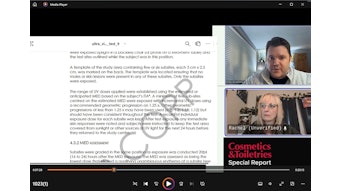
Editors Note: In a recent article appearing in GCI, Independent Cosmetic Manufacturers and Distributors (ICMAD) president Pamela Jo Busiek discusses a number of key legislative issues that greatly impact cosmetics manufacturers. The excerpt follows below.
As a proud supporter of The Safe Cosmetics Modernization Act, H.R. 4075, the Independent Cosmetic Manufacturers and Distributors (ICMAD) wants to ensure our members and constituents are kept informed. Following is additional background on the bill, its purpose and why we advocate its passage into law.
On Nov. 19, 2015, H.R. 4075 was introduced by U.S. Congressman Pete Sessions (R-TX). It is a well-written bill.
There are two primary goals for the bill: (1) enhance and modernize the FDA’s [U.S. Food and Drug Administration] regulatory authority over cosmetics to ensure cosmetic product safety; and (2) achieve strong national uniformity to stop the states from passing laws that would interfere with the national distribution of cosmetics as the states have been doing with their GMO bills that establish varying labeling requirements.
H.R. 4075 accomplishes these goals without adding excessive new regulatory programs and without requiring user fees.
In contrast, the Personal Care Products Safety Act (the Feinstein Bill) advocates the creation of significant new regulatory requirements for cosmetics and significantly expands the FDA’s authority over cosmetics. If passed, the Feinstein Bill will result in cosmetics being more heavily regulated by the FDA than over-the-counter drugs or dietary supplement products, which have demonstrated a much higher risk profile than cosmetics. They also have an excellent safety record.
If passed, the Feinstein Bill will not only greatly increase the cost of manufacturing cosmetic products, but it will also require cosmetic companies to pay user fees to the FDA. Initially, the industry will be required to pay $20 million in user fees, which will escalate over time.
While the Feinstein Bill does appear to provide small business relief, the qualifying factors are such that very few businesses will realize any relief. The Feinstein Bill, which was introduced last spring as the Personal Care Products Safety Act – S. 1014, was strongly influenced by activists. It will not provide national uniformity.
The conditions that must be satisfied under the Feinstein Bill, coupled with the carve-outs from exemptions, make it unclear whether any level of national uniformity will be achieved under the Feinstein Bill.
Read the full article on Cosmetics & Toiletries' affiliate site, www.GCImagazine.com.










